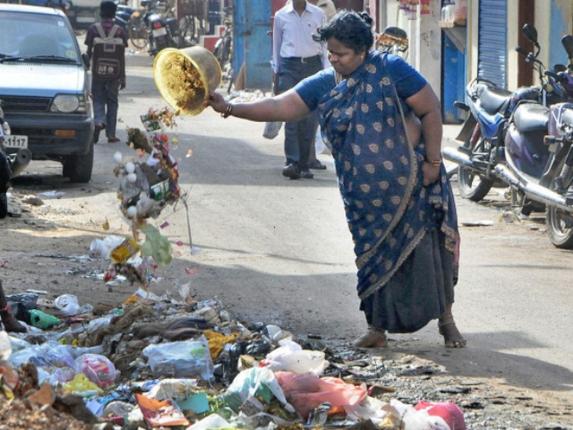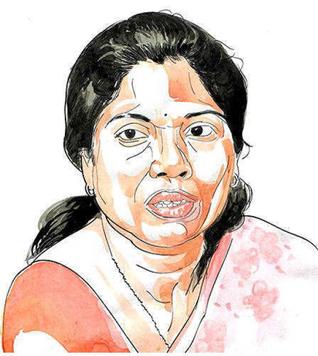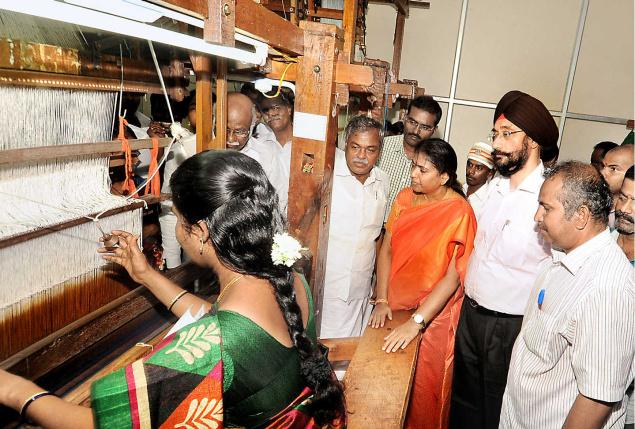Chennai may have proliferating waste, sewer rats, mosquitoes and bad traffic but it is an intellectual city, which does not fake. Its people are real
I would like to invite the new graduates and post-graduates [of Madras University], to journey with me, briefly, on a survey of life around us, of the scene here, in our very own city of Chennai and in our beloved state of Tamil Nadu. You belong, as I do, to Chennai, most of you, and to Tamil Nadu. So what I describe is what you and I are witness to, complicit in, and part of.
Let me start with three things that are good and great about Chennai, famous for having the largest number of temples, medical shops and posters to a street.
First, it is a real city. Its people are real. Their problems are real, their poverty, their misery is real. As are their joys and their sense of fun. Their creativity, their improvisations are real too. Chennai does not fake, does not pretend. And above all, Chennai handles real life, in a real way, making of that reality what it can. You could say India is like that and so it is but, in being true to itself, Chennai can be said to be India’s teacher.
Second, Chennai is a metropolis with a mind of its own. It can, alongside Kolkata, be described as an intellectual metro. ‘Metro,’ incidentally, comes from ‘mother’. A metropolis is ‘Mother City’. This intellectual mother city has corner shops and stalls that sell every variety of newspaper, superb journals, well-brought out magazines — including, I must say a lot of rubbish — with unflagging speed. If you see in a Chennai newspaper the list of that day’s happenings, you will see meetings being organised by study circles ranging from Gandhi to Ambedkar, Periyar to J. Krishnamurti, Marx to Einstein. No wonder a person like Sarvepalli Radhakrishnan, born to a Telugu-speaking mother, chose this mother city as his home.
Third, Chennai is a city with the most extraordinary cultural resources. No other place in the world has as many music halls that double up as meeting halls, small or big, five star or zero star, as Chennai does. ‘All Are Welcome’ is surely a Chennai phrase, signifying the bandwidth of the city’s cultural life. No wonder Tanjore Balasaraswati and Madurai Subbulakshmi became so comfortable in Madras, as the city was then called.
We can be proud to be Chennaivasi.
But pride becomes conceit if it is unaccompanied by honesty. So, let me now turn to three things that are not so good or great and are, in fact, positively wrong about our city and therefore about us.

First, our civic sense. Chennai’s civic sense is an affront to the senses. Of what self-purifying or uplifting use, what earthly or heavenly use, can the temple-at-every possible step be if the Chennai male spits and urinates at every possible corner, crevice and culvert? It is utterly hypocritical on our part to blame the civic authorities, our Corporation, of not keeping the city streets clean, if we maltreat our surroundings 24×7 as we do. The conservancy staff that clears the mounds upon mounds of garbage we generate deserves not just our gratitude but our apology for doing its work without our help. Believe me, they are more important and more deserving of respect than the temple chariots that block our paths every so often in futile repetitiveness.
Ours may be the city where Tiruvalluvar is believed many centuries ago to have lived, where Mudarignar Rajaji, Thanthai Periyar, Perunthalaivar Kamaraj, Arignar Anna and Sangita Kalanidhi M.S. Subbulakshmi lived, but the fact is that ours is also the city where sewage rats proliferate in their millions, mosquitoes breed in their billions and unknown and unnamed diseases incubate in uncountable measure not because the so-called ‘authorities’ are neglectful but because we are callous, short-sighted and downright irresponsible. Make no mistake, dengue and chikunguniya today and — who knows — plague and rabies tomorrow will not be caused by an inefficient administration but by our own cynical lifestyles.
Second, our road sense, by which I mean the way we negotiate our movement on roads, is scandalous. And the biggest offender, I might even say ‘culprit,’ is the motorcyclist. No one is above the law except the motorcyclist. I take it that many if not most of you graduating students of MU are motorcyclists. So please take this as addressed to you. The poor pedestrian is the biggest victim of the motorcyclist’s dizzying hurry.
There is another hurry around us. The hurry to build, which is accompanied by the hurry to destroy. The sharp-toothed bulldozers of destruction which can reduce a building to pulp in a matter of hours and the large cones of cement which can build on the destroyed site within days, are about hurry as well, a hurry to reap in profits as quickly as possible. And the result? Roadsides that are permanently dug-up, footpaths with heaps of sand and cement bags on them.
This brings me to the third wrong, our sense of right and wrong. Chennai is overlooking some human tragedies being enacted right under its gaze. Simply put, this is the huge and widening divide between the very rich and the destitute in our city. If the number of cars and motorcycles has risen dizzyingly, the number of vagrants is also rising at an alarming rate. And they symbolise the great divide.
It is utterly wrong that sky-scraping buildings should rise in our city, both for residential and professional purposes that will pull out ground water in profligate quantities, when thousands of people in the city have to pump up water physically from derelict, broken down hand-pumps at street corners.
Let us not again blame the authorities for giving permissions, clearances. Who asks for them? Who facilitates them? Is there any clearance without an applicant?You, products of Madras University, can choose to be part of the greatness of Chennai or part of its problems. I hope you will choose right.
Tamil Nadu’s tradition
We are rightly proud to belong to this State. Speaking for myself, being a resident of Tamil Nadu, and descended from Tamil ancestors is an identity I cherish. Let me quickly enumerate three things that make our State great.
The first is its breaking the back of caste discrimination. The battle is not over yet but it has achieved phenomenal success. For this we have no one more to thank than Thanthai Periyar and the self-respect movement that he started. We cannot also forget the pioneering role played by the Congress prior to independence against untouchability.
The second is its tradition of religious accord. There is a dangerous wave of religious intolerance that is being set afloat. Tamil Nadu can be sure to rebuff, stoutly and spontaneously, any attempts to introduce religious and communal majoritarianism on the wings of electoral majorities.
The third is the remarkable improvement in the status of its women, be it in the matter of the age of marriage, health or education. The curse of dowry is still with us and in pockets, child marriages still take place, but the woman in Tamil Nadu is no longer the undernourished, under-educated and abused woman of some decades ago.
But let me now list three factors or three characteristics of ours as a people that should cause us to worry.
The first is our proneness to glorify success, success in politics, in commerce, in any field. It is not unconnected to our devotionalism. The glorification of success leads to worship of the successful and the powerful who are, by definition, successful. It is one thing to admire, to support and even to adore. It is quite another to make of anyone we admire, a cult.
The second is our preoccupation with our regional, linguistic and cultural identity. This is self-depriving. We are looked upon — let us be aware of it — as a people who are wrapped up in our own self-importance. This is a very unfortunate image to have for our tradition is far from being that. Take the number of Tamils or residents of Tamil Nadu who have become Bharat Ratnas — Rajaji, Sir C.V. Raman, Radhakrishnan, V.V. Giri, Perunthalaivar Kamaraj, MGR, the author of the green revolution C. Subramaniam, A.P.J. Abdul Kalam, Sangita Kalanidhi M.S. Subbulakshmi. They were national personalities and I take this opportunity to say that it is a thousand pities that Periyar and Arignar Anna were not awarded the Bharat Ratna in their lifetimes.
The third is our relationship with money. It is the most passionate. But in the case of the vast majority of us, the passion is also honest. But it is a fact that we are too easily dazzled by wealth, be it the wealth of persons, corporates, or of temples. Money is blinding us. We may want to earn big, we should not let that desire blind us.
Remember what has made us great and that which keeps our great heritage from rising higher.
Remember too that Tamil Nadu has as much to offer to India today and tomorrow as it did in the decades gone by. You have as yet reputations to make, none to lose. Make them with not just your minds but your consciences wide awake.
(Excerpts from Gopalkrishna Gandhi’s address delivered at Madras University’s 158th annual convocation on Monday. Former Governor of West Bengal, Mr. Gandhi is Distinguished Professor of History and Politics, Ashoka University.)
Click here to read the full text of Mr. Gandhi’s speech
source: http://www.thehindu.com / The Hindu / Home> National> TamilNadu / by Gopalkrishna Gandhi / September 29th, 2015



